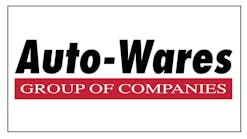Associations rallying opposition to Trump’s tariffs
Industry leaders are uniting with numerous other business organizations in pushing back against President Donald Trump’s announced imposition of tariffs on selected imports of steel and aluminum.
The Auto Care Association and the Motor & Equipment Manufacturers Association (MEMA) continue their respective efforts to prevail upon Trump to change course, citing a series of highly adverse impacts that a 25 percent steel tariff and a 10 percent tariff on aluminum could have on the automotive sector.
Another troubling element is Trump’s stated plan to link the tempest over tariffs with re-negotiations of the North American Free Trade Agreement (NAFTA).
MEMA – along with its Automotive Aftermarket Suppliers Association (AASA), the Heavy Duty Manufacturers Association (HDMA), the Motor & Equipment Remanufacturers Association (MERA) and the Original Equipment Suppliers Association (OESA) – has been assertive in issuing anti-tariff missives to the White House.
“In multiple public comments and in a letter to President Trump, we made our concerns about the negative effects of tariffs clear: Tariffs will be nothing less than detrimental to the motor vehicle parts supplier industry,” said MEMA President & CEO Steve Handschuh. “While we support the administration’s focus on strong domestic steel and aluminum markets, tariffs will limit access to necessary specialty products, raise the cost of motor vehicles to consumers, and impair the industry’s ability to successfully compete globally.”
Handschuh further noted that “while the exclusion of Canada and Mexico may help in the short term, we are disappointed that President Trump chose to disregard our message and allow these tariffs to take effect. But we will not stop our efforts on behalf of our members. We will continue to communicate our concerns about these tariffs to the Trump administration and legislators in the hope that we may mitigate long-term negative effects.”
MEMA has additionally been calling for its membership to reach out to House and Senate members with tariff-opposition messaging.
AutoZone, Walmart, Costco and Sears were among 25 major-chain signatories to a March 19 letter penned to Trump by the Retail Industry Leaders Association (RILA), the National Retail Federation (NRF) and other trade executives. “Tariffs are a hidden tax on Americans – plain and simple,” the letter declared.
The Auto Care Association has been actively engaged in anti-tariff lobbying as well. “Based on the fact that there are few parts necessary for the upkeep of a vehicle that do not contain significant amounts of steel and aluminum, this action will have a significant negative impact throughout the supply chain, including many medium and small businesses and their employees that comprise the auto care industry,” said Bill Hanvey, the Auto Care Association’s president and CEO, in a March 12 letter written to Trump.
“While we are grateful that our trading partners, Canada and Mexico, are currently exempt, it is our view that that these tariffs will quickly become a tax on the repair and maintenance of vehicles, a tax that will ultimately be paid for in higher repair prices by the American car owner,” Hanvey wrote. A succeeding announcement included the European Union, Argentina, Australia, Brazil and South Korea on the list of exemptions, although quotas on imports could be initiated going forward.
Differing scenarios
A looming linkage between tariffs, NAFTA and the prospects of an international trade war were discussed during March 13 webinar conducted by the Auto Care Association, which presented a trio of international barristers from Dentons, a 7,700-member global law firm based in London.
If a trade war does ensue, said Paul Lalonde, a partner at Dentons’ office in Toronto, “It’s going to have profound effects all over the world in different markets.”
As the tariffs were initially announced a rather cheeky opening salvo was fired by European Commission President Jean-Claude Juncker, who suggested that the EU impose tariffs on Harley Davidson motorcycles, Kentucky bourbon and Levi’s jeans. (Republican Speaker of the House Paul Ryan’s district is in Wisconsin, home of Harley’s headquarters. Republican Senate Majority Leader Mitch McConnell hails from Kentucky, famous for its sour mash still skills. And Democratic House Minority Leader Nancy Pelosi represents San Francisco, where Gold Rush prospectors discovered that Levi Strauss’ rivet-reinforced serge de Nîmes garments perfectly withstood the rigors of mining; denim remains a big industry in the Bay area.)
During the Auto Care Association webinar Lalonde explained how the U.S. has made it clear that it considers a NAFTA settlement equal to the tariff controversy, while Canada and Mexico insist they “are totally separate issues.” “There’s a lot of different scenarios that may play out in the coming months” pertaining to NAFTA its relationship to the tariffs.
“It’s the subject of daily front page news” in Canada, creating a sense of urgency for Prime Minister Justin Trudeau to effectively seal a deal in time for his 2019 re-election bid, according to Lalonde.
“We’re the biggest customer for U.S. export goods,” amounting to 18 percent of America’s non-domestic sales. “Two-way trade accounts for almost 40 percent of Canada’s GDP,” Lalonde added.
Canada has seven targeted NAFTA goals addressing subjects such as environmental considerations, easing cross-border movement for professionals, enhancing trade conflict resolution procedures and supply management preservation. “Canada hasn’t signaled yet that it’s received anything close to acceptable” terms during the NAFTA negotiation process, he reported. “There are still major gaps with U.S. demands,” viewed as “poison pills” by many Canadians.
NAFTA negotiation topics so far have addressed “the lowest hanging fruit,” but “the most contentious issues are still on the table,” said Yohai Baisburd, a Washington, D.C.-based Dentons partner, including automotive rules of origin (ROO) standards that cover a part of a vehicle’s “regional content” per the U.S., Canada and Mexico. “We are natural partners among our region.”
Some products have been granted exclusionary status, but for the most part there exists a case-by-case basis for specific exclusions, such as when a particular variety of metal is not available in the U.S.
Trump’s inclusion of the American 232 national security justification regarding the tariffs “is considered the third rail of WTO law,” Baisburd observed, in reference to rules promulgated by the World Trade Organization. “What constitutes national security?”
Currently there remains an “unclear calculus” as to whether Trump will soon obtain an updated NAFTA agreement or continue to leverage “having it to beat up on,” Baisburd said. “He’s linked the steel and aluminum exclusions to the NAFTA negotiation,” and “there’s increased pressure on Canada and Mexico” to reach a settlement. “NAFTA is highly politicized in Mexico, probably even more so than in the U.S.”
“Mexico’s not comfortable with U.S. imposition to place a 25 percent tariff on steel imports and a 10 percent tariff on aluminum, despite that Mexico has been excluded,” said Gregorio G. Canales, partner at Dentons Lopez in Mexico City. A subsequent international uproar is not in Mexico’s best interests.
“The issues of rules of origin in the automotive sector has created tension and differences within the Mexican government and private sector,” Canales continued. “It appears that this is one of the most complex chapters subject to re-negotiation of NAFTA.”
Despite these difficulties, though, Mexico’s auto exports to the U.S. in 2018 are up 9.5 percent over last year’s figures, according to Canales.
A study by the Boston Consulting Group, commissioned by MEMA, has posited that changes to the rules of origin could put up to 24,000 U.S. jobs at risk, while withdrawing from NAFTA could jeopardize the livelihoods of about 50,000 Americans.
The steel and aluminum tariffs are especially alarming, MEMA executives emphasized in a membership message urging you to contact your elected officials: “Ask them to reach out to the White House and encourage exclusions for the specialty steel and aluminum products suppliers rely on to manufacture parts, components and systems necessary for new vehicles.”
Rust Belt disruptions
A recent Trump-announced initiative to apply annual tariffs that could be worth more than $50 billion on Chinese imports is yet another source of consternation for the automotive segment. China directly accounts for 7 percent of the steel and aluminum shipments coming into the U.S., although China’s metals are frequently resold into America by other nations.
A report by analysts Max Bouchet and Joseph Parilla at the Brookings Institution says that Canada and Mexico supply together 32 percent of U.S. aluminum and steel imports. Canada alone accounts for one-fourth of U.S imports of these commodities.
“When measured by total volume, the nation’s largest states dominate steel and aluminum imports. Texas, California, Illinois, Michigan, Louisiana, Pennsylvania, Ohio and New York all import more than $2 billion annually in steel and aluminum products, together accounting for 60 percent of the nation’s total,” according to Bouchet and Parilla.
“Aside from Texas, California, and Louisiana,” they point out, “these states concentrate in the Northeast and Midwest’s Rust Belt. Given the large size of their economies, disruptions to trade in these states have significant potential to influence national economic growth and key industry sectors like automotive manufacturing, chemicals, and oil and gas production.”
Subscribe to Aftermarket Business World and receive articles like this every month….absolutely free. Click here.



